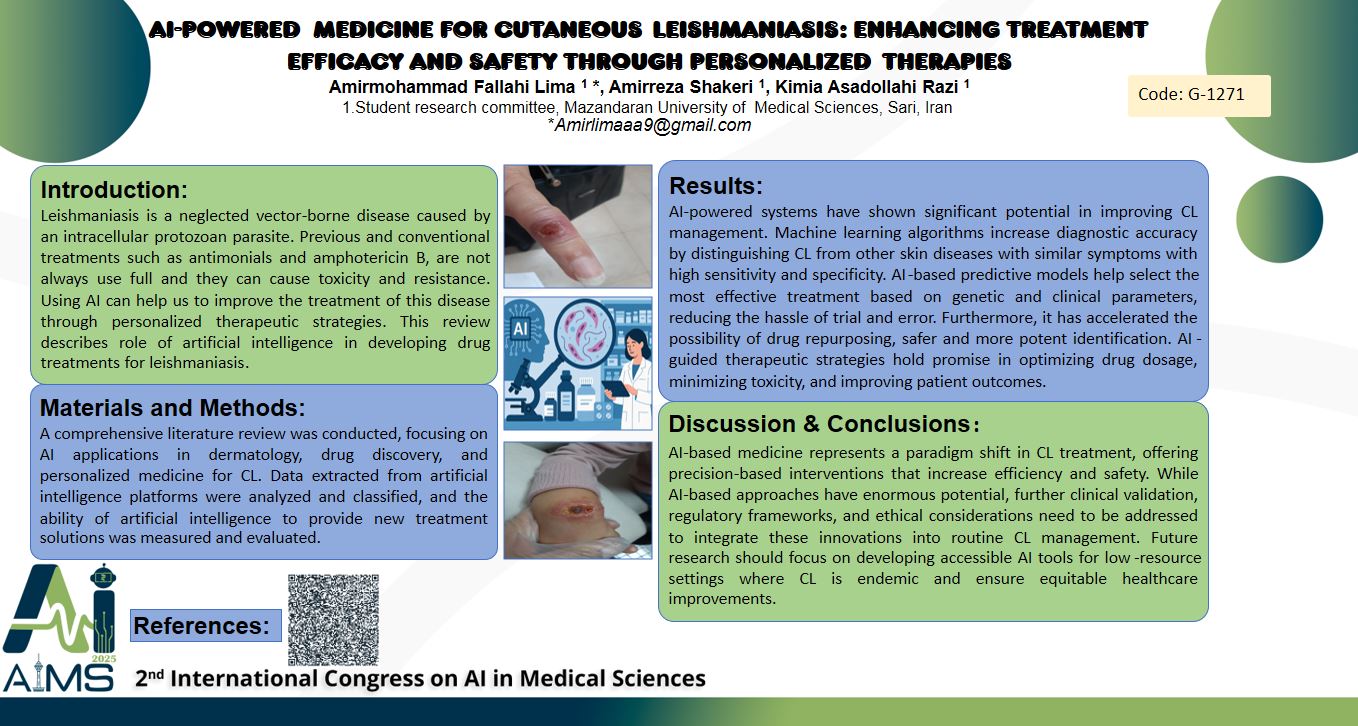AI-Powered Medicine for Cutaneous Leishmaniasis: Enhancing Treatment Efficacy and Safety through Personalized Therapies
Code: G-1271
Authors: Amirmohammad Fallahi Lima * ℗, Amirreza Shakeri, Kimia Asadollahi Razi
Schedule: Not Scheduled!
Tag: Drug Discovery
Download: Download Poster
Abstract:
Abstract
Background and Aims: Leishmaniasis is a neglected vector-borne disease caused by an intracellular protozoan parasite. Previous and conventional treatments such as antimonials and amphotericin B, are not always use full and they can cause toxicity and resistance. Using AI can help us to improve the treatment of this disease through personalized therapeutic strategies. This review describes role of artificial intelligence in developing drug treatments for leishmaniasis. Methods: A comprehensive literature review was conducted, focusing on AI applications in dermatology, drug discovery, and personalized medicine for CL. Data extracted from artificial intelligence platforms were analyzed and classified, and the ability of artificial intelligence to provide new treatment solutions was measured and evaluated. Results: AI-powered systems have shown significant potential in improving CL management. Machine learning algorithms increase diagnostic accuracy by distinguishing CL from other skin diseases with similar symptoms with high sensitivity and specificity. AI-based predictive models help select the most effective treatment based on genetic and clinical parameters, reducing the hassle of trial and error. Furthermore, it has accelerated the possibility of drug repurposing, safer and more potent identification. AI-guided therapeutic strategies hold promise in optimizing drug dosage, minimizing toxicity, and improving patient outcomes. Conclusion: AI-based medicine represents a paradigm shift in CL treatment, offering precision-based interventions that increase efficiency and safety. While AI-based approaches have enormous potential, further clinical validation, regulatory frameworks, and ethical considerations need to be addressed to integrate these innovations into routine CL management. Future research should focus on developing accessible AI tools for low-resource settings where CL is endemic and ensure equitable healthcare improvements.
Keywords
Leishmaniasis, Amphotericin B, Artificial Intelligence
